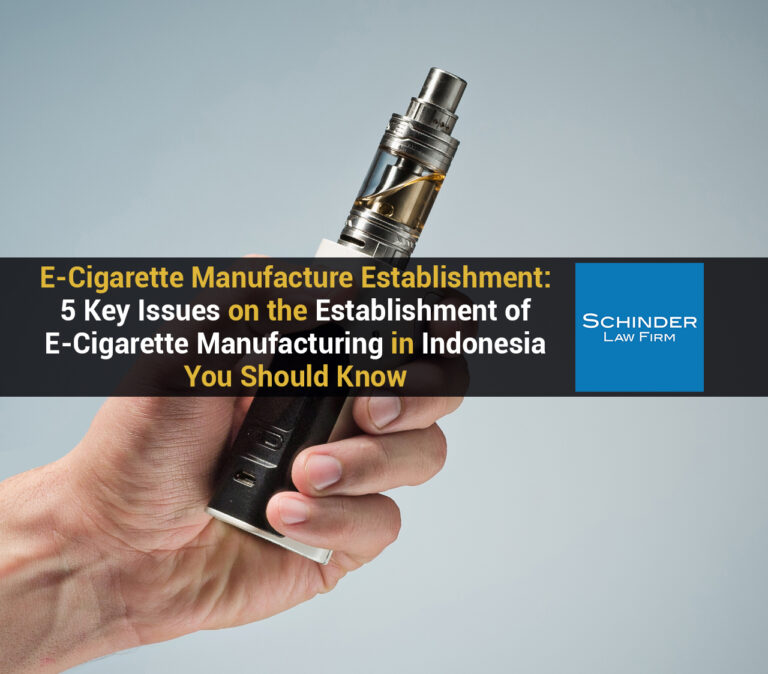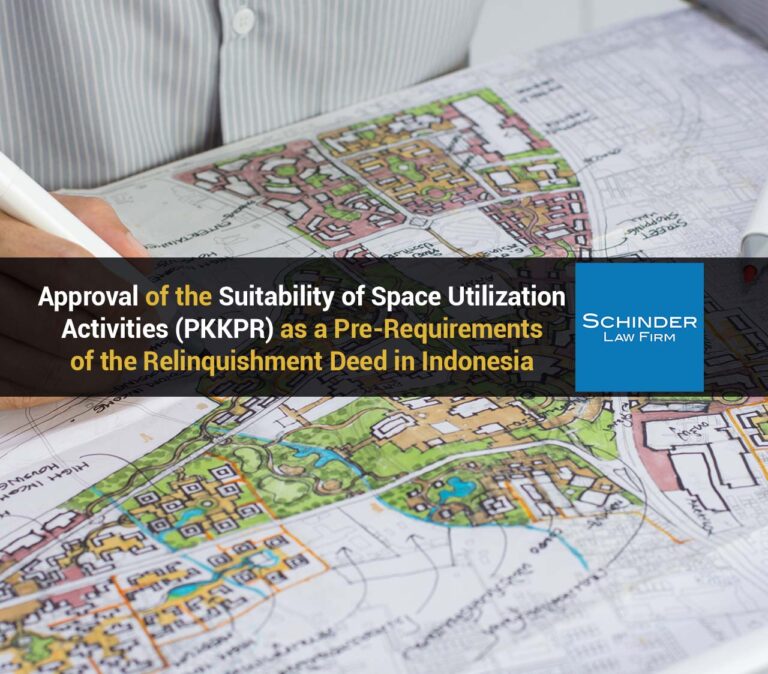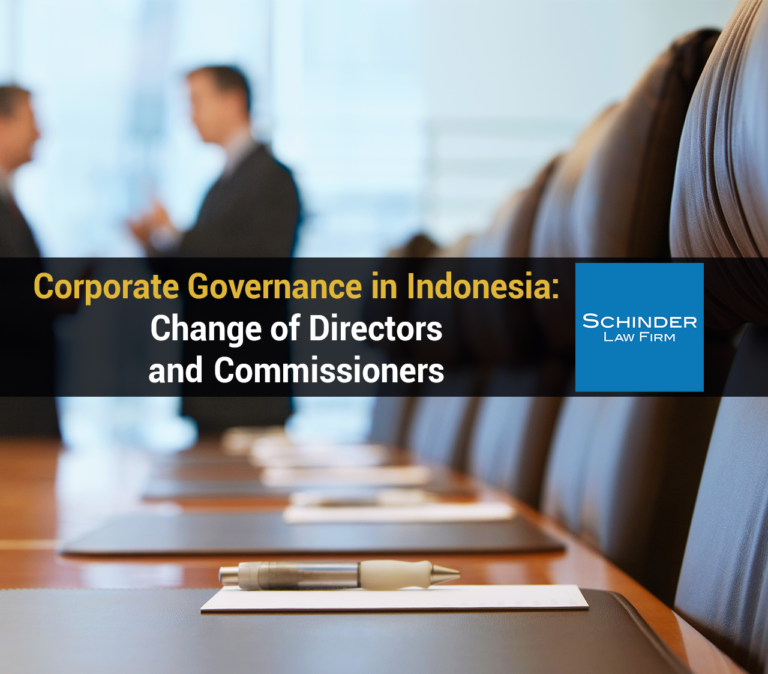
Establishing a Power Station Operation and Maintenance (“O&M”) Service Business in Indonesia
To conduct O&M Service for Power Station business, the company should obtain an Electric Power Supporting Services Business License (Izin Usaha Jasa Penunjang Tenaga Listrik – IUJPTL). The requirement by law in Indonesia to get the IUJPTL is regulated under Article 31 paragraph 1 letter (d) and (e) of Government Regulation in Indonesia Number 25 of 2021 regarding the Implementation of Energy and Mineral Resources (“PP 25/2021”).

Mining Licenses Revocation in the First Semester of 2022 in Indonesia
President Joko Widodo announced the revocation of 2.078 mineral and coal Mining Business Permits (Izin Usaha Pertambangan/IUP) because the IUP holders never submitted their work plans (Rencana Kerja dan Anggaran Biaya/RKAB) even though the permits had been granted for years. Minister of Investment/Head of the Investment Coordinating Board Bahlil Lahadalia stated that the revocation of IUPs for 2.078 mining companies in Indonesia was carried out starting January 2022, following Presidential Decree No. 1 of 2022

E-Cigarette Manufacture Establishment:5 Key Issues on the establishment of e-cigarette manufacturing in Indonesia you should know
After a small decline in Indonesia’s vaping population in 2020 due to the COVID-19 pandemic, the numbers began to increase again in 2021 with 1.7m vapers reported and a market worth $239m, representing an 8 percent growth from last year. Smoking rates are declining with smokers slowly shifting to vaping, while other alternatives (e.g. heated tobacco) are slowly picking up.

Approval of the Suitability of Space Utilization Activities (PKKPR) as a Pre-Requirements of the Relinquishment Deed in Indonesia
Foreign investment activities are a powerhouse for the country’s economy. So, of course, the provisions in the Investment Law and the Indonesian Negative List play an essential role in guiding foreign investors to carry out investment activities in the Republic of Indonesia.

How Many Types of Mining Permits that Mining Owners Should Have in Indonesia?
To carry out mining activities in Indonesia, it is necessary to own permits in accordance with the latest government regulations and other applicable Laws in Indonesia. The stages of mining start from general investigation, exploration, feasibility study, construction, mining, processing, and refining, transportation and sales, and post-mining. These stages can be fully or partially carried out by one mining company, it depends on the type of mining permit the company owns.

New Rules for Final Income Tax for Construction Services in Indonesia
The Indonesian Government has issued a new rule for Income Tax or Pajak Penghasilan (“PPh”) for construction services, namely Government Regulation No. 9 of 2022 concerning the Second Amendment to Government Regulation No. 51 of 2008 concerning Income Tax on Income from Construction Services Business (“GR 9/2022”).

Mergers and acquisitions in Indonesia have increased significantly in 2020 and 2021. Does this lead to monopolistic practices and unfair business competition?
The Commissioner of the Business Competition Supervisory Commission or Komisi Pengawas Persaingan Usaha (“KPPU” ), Ukay Karyadi, stated that mergers and acquisitions in Indonesia have increased significantly in 2020 and 2021. It was noted that in 2019, the number of notifications of mergers and acquisitions was 123, rising to 196 notifications in 2020 and 233 notifications in 2021.

Why You Should (WNI and WNA) Have Social Health Insurance (BPJS) When You Buy a Property in Indonesia
The government, through legal instruments, has designed a National Health Insurance Program (“JKN”) which is mandated to the Social Health Insurance Administration Body (“BPJS Kesehatan”) as stated in Article 19 paragraph (2) of Law Number 40 of 2004 which explains that JKN is held to ensure that participants receive the benefits of health care and protection to meet basic health needs.
Recently, the President of the Republic of Indonesia issued Presidential Instruction Number 1 of 2022 (“Inpres No.1/2022”) which contains the

Corporate Governance in Indonesia: Change of Directors and Commissioners
In addition to the General Meeting of Shareholders, there are a Board of Directors and Board of Commissioners that are also bodies of limited liability companies in Indonesia. The Board of Directors (BOD) is the company’s body that manages the day-to-day business, and the Board of Commissioners (BOC) supervises the director(s) and can step in and report to the shareholders if necessary. From time to time, companies will change their director or commissioner. Since the director and commissioner are not a regular employee, a specific procedure applies for such an amendment.

Contract Law Guide: How to amend the EPC Contract in a disagreement between consortium members
A construction project, specifically for an EPC project, is typically conducted by contractors in a consortium. The implementation of the EPC Contract was often changed or adjusted according to the project circumstances.
In some situations, a disagreement between the consortium members related to the contract amendment was unavoidable. For example, we had a client (contractors, consortium members) who needed to change a provision regarding the retention money and was willing to replace the retention money with a warranty bond, which is our client’s obligation according to the EPC Contract
Practice Area
- Dispute Resolution
- Foreign Direct Investment
- Business Formation, Mergers and Acquisitions
- Land and Property
- Construction and Real Estate
- Employment and Labor
- Environmental Law
- Bankruptcy, Insolvency and Restructuring
- Aviation and Shipping
- White Collar Crime
- Intellectual Property and IP Dispute
- Privacy, Data Protection and Cyber-Security